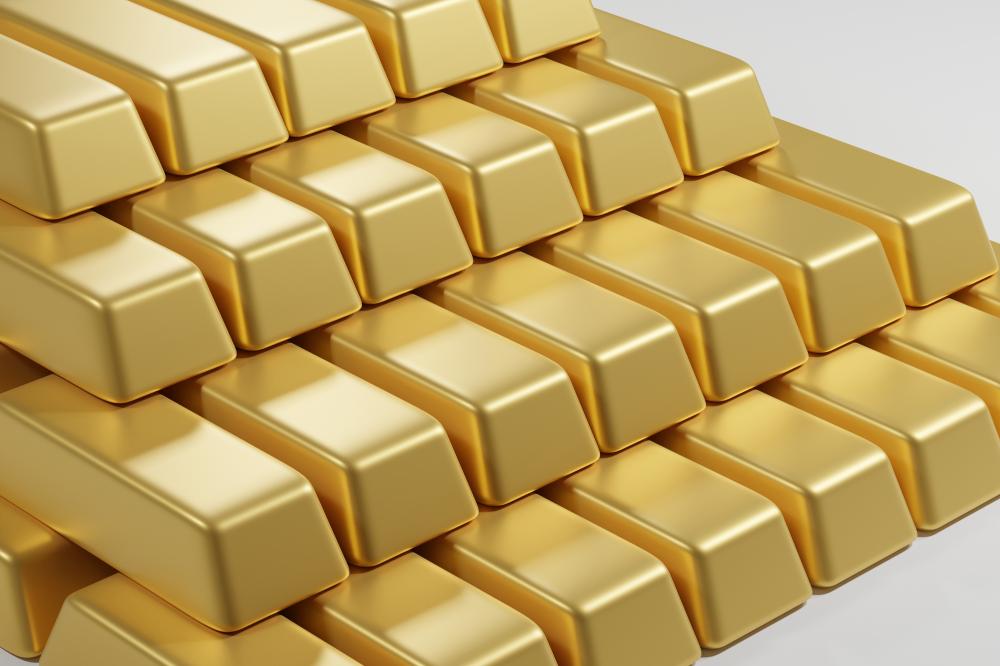
Understanding Gold Refinery Services
Finding a reliable gold refinery near me can seem like a daunting task, especially when you’re looking for quality and trustworthiness. A gold refinery’s primary role is to purify mined gold, scrap gold, and other precious metals, ensuring they’re processed to meet high standards. This process not only involves the removal of impurities but also the careful handling and assessment of the precious metals to guarantee their value and purity.
Choosing the Right Gold Refinery
When searching for a gold refinery near me, it’s essential to consider several factors, including the refinery’s reputation, transparency in their processing fees, the technology they use, and their customer service. Reputation is often a reflection of a company’s reliability and the quality of service it provides. Refineries that are transparent about their fees and the methods they use are generally more trustworthy.
In my experience, working with a refinery that embraces modern technology not only ensures efficiency but also precision in the purification process. However, what truly makes a refinery stand out is its customer service. The level of support and guidance provided is crucial, especially for those new to gold selling or trading.
Services Offered by Gold Refineries
Refineries provide a range of services that cater to various needs, from melting and assaying to recycling and selling of precious metals. Understanding these services can make a significant difference in choosing the right refinery.
- Melting and Assaying: Determines the purity and weight of your gold, crucial for getting an accurate value.
- Recycling: Offers an eco-friendly solution for repurposing scrap gold.
- Selling Precious Metals: Some refineries offer to buy gold directly, providing a convenient option for immediate sales.
What to Look for in a Gold Refinery
Reputation and Reviews
One of the first things I check when searching for a gold refinery near me is the company’s reputation. Online reviews and testimonials can provide insight into the experiences of other customers. Additionally, industry certifications and memberships can indicate a refinery’s commitment to quality and ethical standards.
Transparency
Transparency in pricing and processing methods is another critical factor. It’s reassuring to work with a refinery that is upfront about their charges and how they determine the value of your gold.
Customer Service
Excellent customer service is the backbone of a good refinery. Prompt responses, clear communication, and helpful support make the refining process smoother and more transparent.
Benefits of Local Refineries
Opting for a local gold refinery can offer numerous advantages. Firstly, the convenience of location makes it easier to visit and establish a personal connection with the refinery staff. This face-to-face interaction fosters trust and allows for a better understanding of the services provided.
Moreover, supporting local businesses is beneficial to the local economy. It promotes growth and sustainability within the community. Additionally, local refineries might offer competitive rates and personalized services that larger, more impersonal companies may not.
Ecological Impact of Gold Refining
The process of refining gold and other precious metals can have significant environmental impacts. Modern refineries are increasingly adopting eco-friendly techniques, reducing harmful emissions and ensuring sustainable practices. When searching for a gold refinery near me, it’s worth inquiring about their ecological policies and practices. Choosing a refinery that prioritizes environmental responsibility contributes to the broader effort of protecting our planet.
Understanding the Gold Refinery Process
The process of refining gold involves several steps, each designed to purify and prepare gold for new creations. Starting with the initial assessment, the gold’s purity and weight are determined. This is followed by melting and further chemical processes that remove impurities. The final step involves casting the purified gold into bars or other forms, ready for sale or fabrication into new products.
Knowing these steps helps in understanding the complexity and precision required in gold refining. It underscores the importance of choosing a skilled and trustworthy refinery.
Finding the Right Fit
In conclusion, finding the right gold refinery near me involves research, understanding the services offered, and considering the refinery’s reputation, transparency, and customer service. Opting for a local refinery can provide additional benefits such as convenience and community support. Lastly, acknowledging the ecological impact of refining processes and choosing environmentally responsible refineries can make a significant difference.
Remember, the goal is not just to find any refinery but to find the right partner who meets your specific needs and upholds high standards of quality and integrity.

Can you make money refining scrap gold?
Absolutely, refining scrap gold can be a lucrative endeavor, but it’s crucial to understand the nuances. Picture this: you’ve inherited some old jewelry pieces from a relative, or perhaps you’ve stumbled upon a deal at a local garage sale. These items, while not valuable in their current form, hold the potential for profit once refined. The key lies in the purity and weight of the gold after the refining process. The higher the purity, the higher the market value. However, it’s not just about melting down gold; considerations like refining costs and the fluctuating gold market play significant roles. For those keen on entering this space, staying informed about current gold prices and refining technologies is vital. It’s also worth exploring relationships with reputable refinaries that offer fair rates and transparent processes. Have you considered what type of gold items you might start with, or how you’d establish a relationship with a refinery?
How much does it cost to refine scrap gold?
The cost of refining scrap gold varies widely and is influenced by several factors, including the amount of gold, its purity before refining, and the fees charged by the refinery. Typically, refineries charge a percentage of the gold’s value post-refining, which can range from 1% to 5%, or they may have a flat fee based on the amount of gold being processed. Advanced technologies and eco-friendly refining processes might also add to the cost but result in higher purity and yield. It’s worth noting, however, that while there’s an upfront cost to refining, the end result is purified gold, which often holds more market value. As a piece of advice, always ask for a detailed breakdown of costs from the refinery and compare quotes. This can help ensure you’re getting a fair deal. Discussions about costs are also a good opportunity to ask about the refinery’s technology and ecological practices, wouldn’t you agree?
Where is the biggest gold refinery in the world?
The title of the biggest gold refinery in the world currently belongs to Valcambi, located in Balerna, Switzerland. Valcambi has a staggering capacity to refine over 2,000 metric tons of gold annually. Established in 1961, it has grown to be a powerhouse in the global precious metals market, offering services like refining, assaying, and minting. Valcambi’s certifications and accreditations testify to its commitment to quality, sustainability, and ethical sourcing. What makes Valcambi truly stand out, though, is not just its scale but its innovative approach to refining and dedication to eco-friendly practices. Imagine the precision and expertise required to maintain such high standards at massive volumes. It’s this blend of capability and responsibility that sets the benchmark in the gold refining industry. Have you ever wondered about the journey of gold before it becomes the jewelry or electronics component we use daily?
Who is the largest precious metal refiner in the US?
In the United States, Asahi Refining stands out as one of the largest refiners of precious metals, with a strong focus on gold and silver. With origins dating back over 200 years, Asahi has established a significant presence in the precious metals industry, particularly after acquiring the Johnson Matthey gold and silver refining businesses in 2014. Headquartered in Salt Lake City, Utah, Asahi Refining combines its rich history with modern technology to provide high-quality refining services. Their technical prowess enables them to process a wide range of materials, from mining outputs to scrap gold, ensuring a high level of purity in the final product. Asahi’s commitment to excellence, environmental responsibility, and customer service makes it a notable name not just in the U.S. but globally. It’s fascinating to see how such institutions maintain legacy while innovating for the future, don’t you think?
What are the benefits of using local refineries for gold processing?
Opting for a local refinery when it comes to processing your gold can bring several advantages. First and foremost, the convenience factor is unbeatable. Being able to personally visit the refinery gives you a firsthand look at their operation, fostering a sense of trust and transparency. It also allows for real-time communication, which can be crucial for making timely decisions based on the current gold market. Additionally, supporting local businesses is not just good for the economy but can also lead to more personalized services tailored to your specific needs. This close-knit relationship could mean better rates and faster service. Plus, many local refineries take pride in sustainable practices, which is increasingly important. Imagine forming a partnership where you’re not just a transaction but a valued member of a local business community. Have you thought about how choosing a local refinery might impact your overall refining experience?
How does gold refining impact the environment, and what are refineries doing to mitigate this?
Gold refining has a significant impact on the environment, primarily due to the chemicals used in the process and the energy required for melting and purifying. However, the industry is increasingly adopting eco-friendly practices to mitigate these effects. Many refineries now use processes that reduce harmful emissions, recycle waste, and aim for energy efficiency. For instance, methods such as electrolysis and aqua regia refining have evolved to become more environmentally benign, minimizing the ecological footprint. Responsible refineries are also investing in technologies that allow for the capture and safe disposal of toxic substances. Furthermore, transparency about sourcing is becoming a norm, with a push towards using recycled gold as a way to lessen the impact of mining. It’s a collective effort that not only ensures the sustainability of the industry but also aligns with a global push towards ecological responsibility. When searching for a gold refinery, how important is their commitment to the environment to you?
Gold Refinery Resources
- United States Mint – The official website of the United States Mint provides information on gold coins and precious metals.
- Environmental Protection Agency (EPA) – The EPA offers resources on environmental impact and regulations related to gold refining.
- Better Business Bureau (BBB) – The BBB provides ratings and reviews of gold refineries to help you make informed decisions.
- Federal Trade Commission (FTC) – The FTC offers consumer information and guidelines on selling gold and precious metals.
- Gemological Institute of America (GIA) – The GIA provides education and research on gemstones and precious metals, including gold.

Recent Comments